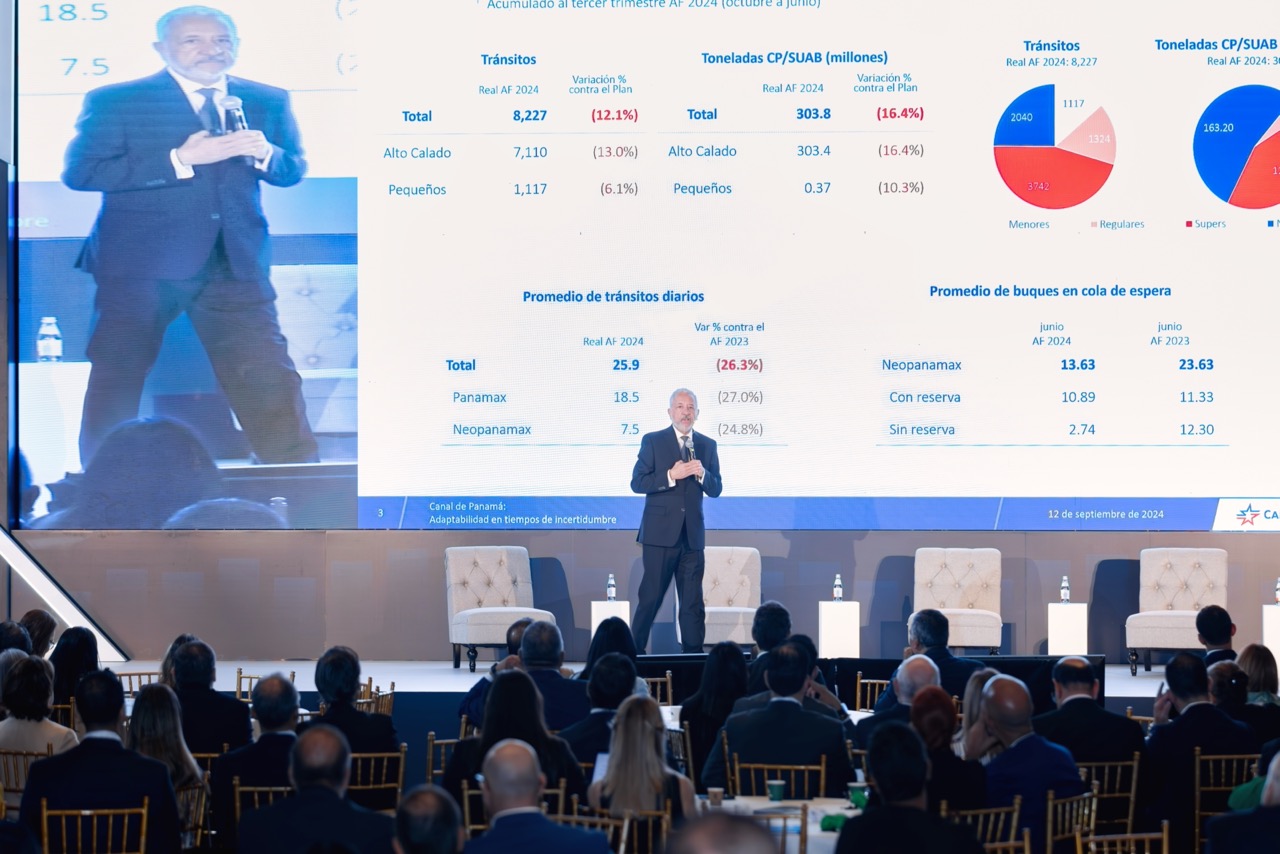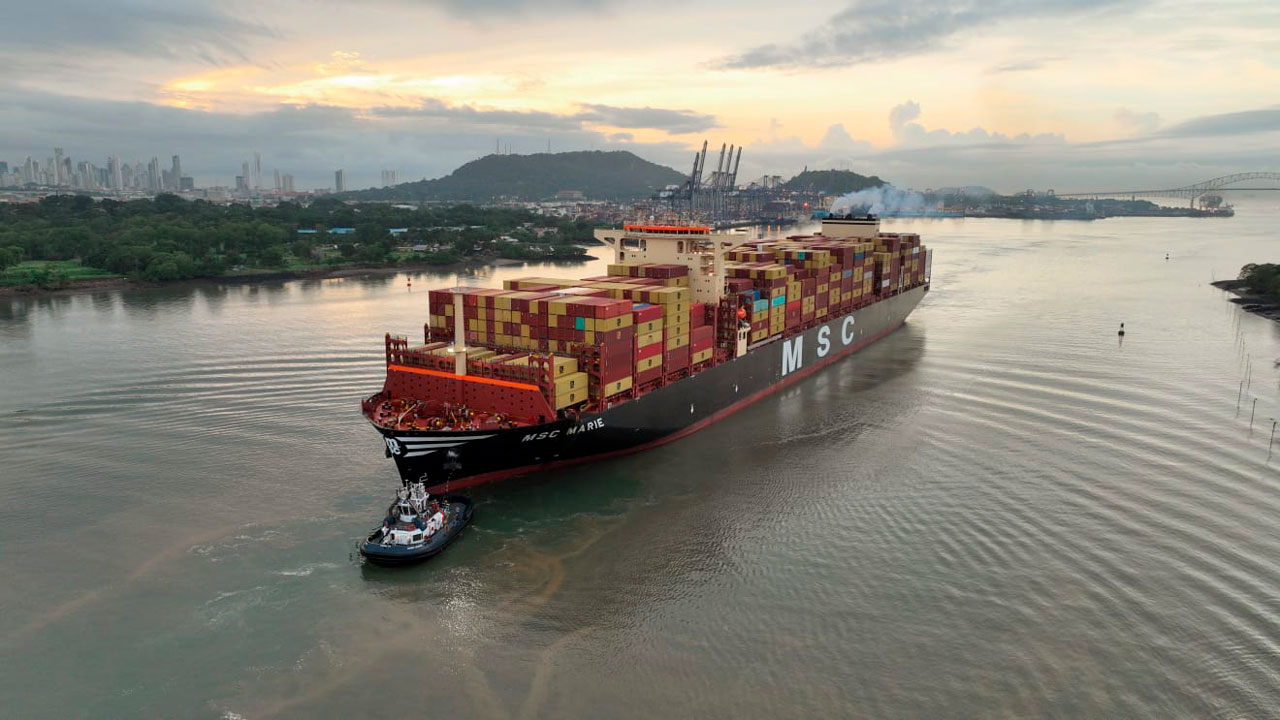Washington, D.C. November 13, 2003 – In a move affirming their commitment to sustainable development and the environment, the Panama Canal Authority (ACP) announced today that Administrator Alberto Alemán Zubieta and Juan Hector Díaz, Director for Environment and Security, attended the World Business Council on Sustainable Development’s (WBCSD) annual meeting in Washington, D.C., as council member and delegate respectively. They joined chief executive officers and executives of major corporations and businesses, such as: 3M, British Petroleum, Eastman Kodak, Caterpillar, Ford Motor Company, General Motors and Time Warner, all members of the WBCSD.
The ACP joined the WBCSD in August 2002. A well-respected organization based in Geneva, Switzerland, it is composed of 175 major companies from across the globe that are committed to pursuing environmentally-sound policies and sustainable development practices in the conduct of their business.
Alemán Zubieta commented: “The Panama Canal Authority is firmly committed to sustainable development and environmental stewardship. We are also acutely aware of and dedicated to our role as corporate citizen – conducting business in a socially responsible and environmentally friendly fashion.”
Alemán Zubieta further said: “These days, for a business to create long-term value, it needs to proactively engage its stakeholders and pursue high environmental standards to promote sound business practices.”
Juan Hector Diaz, Director for Environment and Security, said: “The ACP values its role as environmental stewards of the Panama Canal Watershed. Water is our raw material. This watershed supplies the water for the two largest cities in Panama and for Canal operations. As such, we need to protect this important resource and ensure that the main source of water supply is conserved.”
The ACP has made significant strides in protecting the environment and promoting sustainable development. In a recent Corporate Social Responsibility (CSR) Conference in Panama, sponsored by the Inter-American Development Bank, Alemán Zubieta spoke to conference participants about the Canal’s vision and mission towards economic development, ecological balance and social development. Barely four years in Panamanian hands, the ACP has broken nearly every existing record in its history regarding security, revenues and efficiency (measured in hours in Canal waters), and has gained ISO 9001 Certification for its management, as well as ISO 14001 Certification – a testimony to the Canal’s quality of service and commitment to the environment.
As a signatory of the United Nations Global Compact, the ACP pursues ongoing initiatives as a corporate citizen – to conduct “business in a socially responsible and environmentally friendly fashion.”
About the Panama Canal Authority
The Panama Canal Authority is the autonomous agency of the Government of Panama in charge of managing, operating, and maintaining the Panama Canal. The operation of the Panama Canal Authority is based on its organic law and the regulations approved by its Board of Directors. For more information, please refer to the Panama Canal Authority’s Web site: www.pancanal.com.
The Authority’s responsibility to the Panamanian people is paramount. The Canal belongs to the people and benefits from the Canal should accrue to as many Panamanians as possible. The Authority will plan its future so that it will continually contribute to the economic development and welfare of the citizens of Panama.
For nearly 90 years, the Panama Canal has served as the global gateway – a pathway for the shipment of major world commodities. Since the end of 1999, the ACP assumed the responsibility for the management, operation and modernization of the Canal as well as the protection and conservation of its watershed.
In the past four years, the ACP has made significant strides – shifting to a market-oriented business model focused on customer service and reliability, making major capital investments for new and modern equipment and machinery, increasing safety and operational efficiency for customers, decreasing the time it takes ships to travel through the Canal and widening and deepening sections of the waterway.
An important transportation link, the Canal services more than 140 different transportation routes from every corner – It is where major trading routes of the world connect and intersect providing safe, reliable and secure passage for all vessels.




